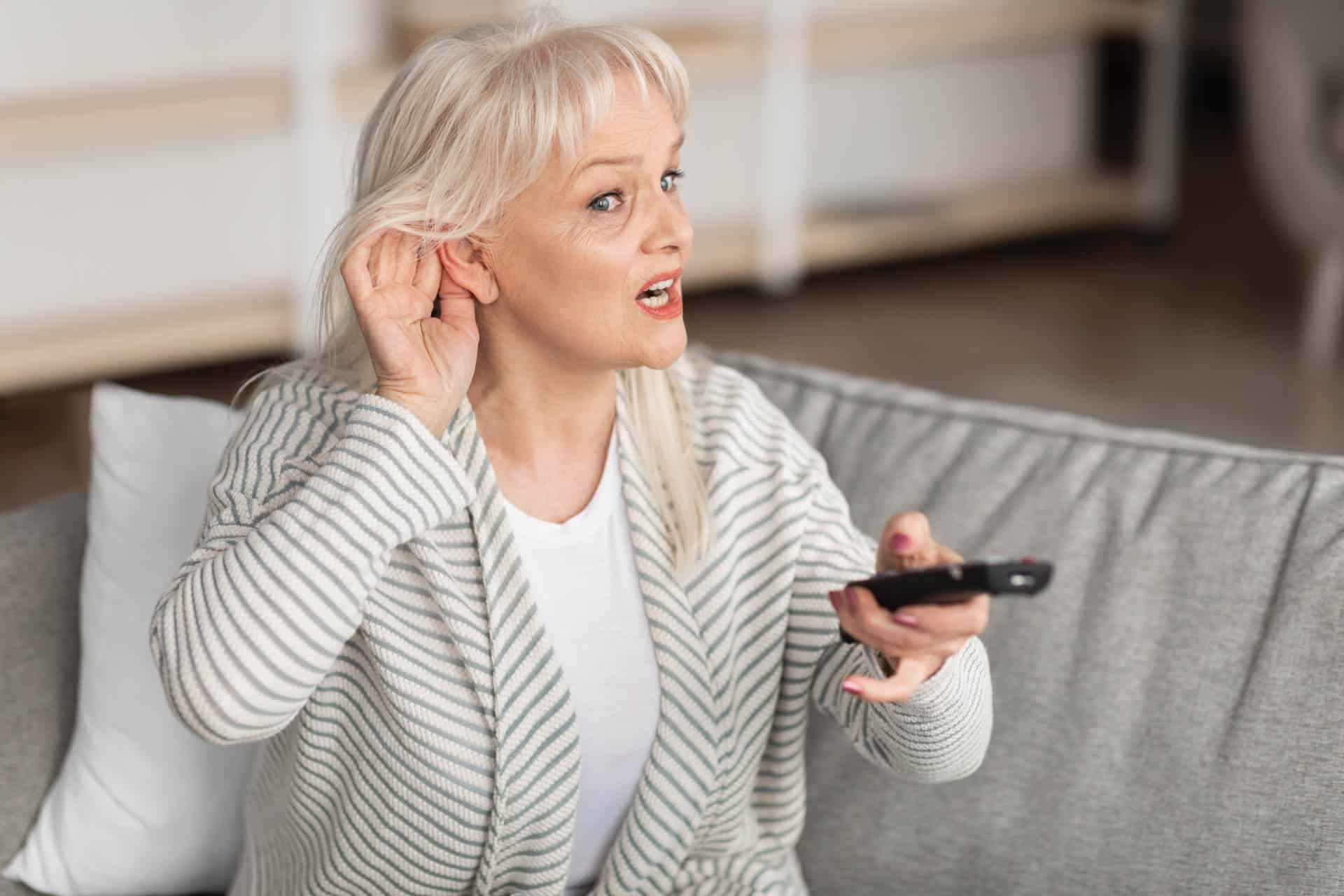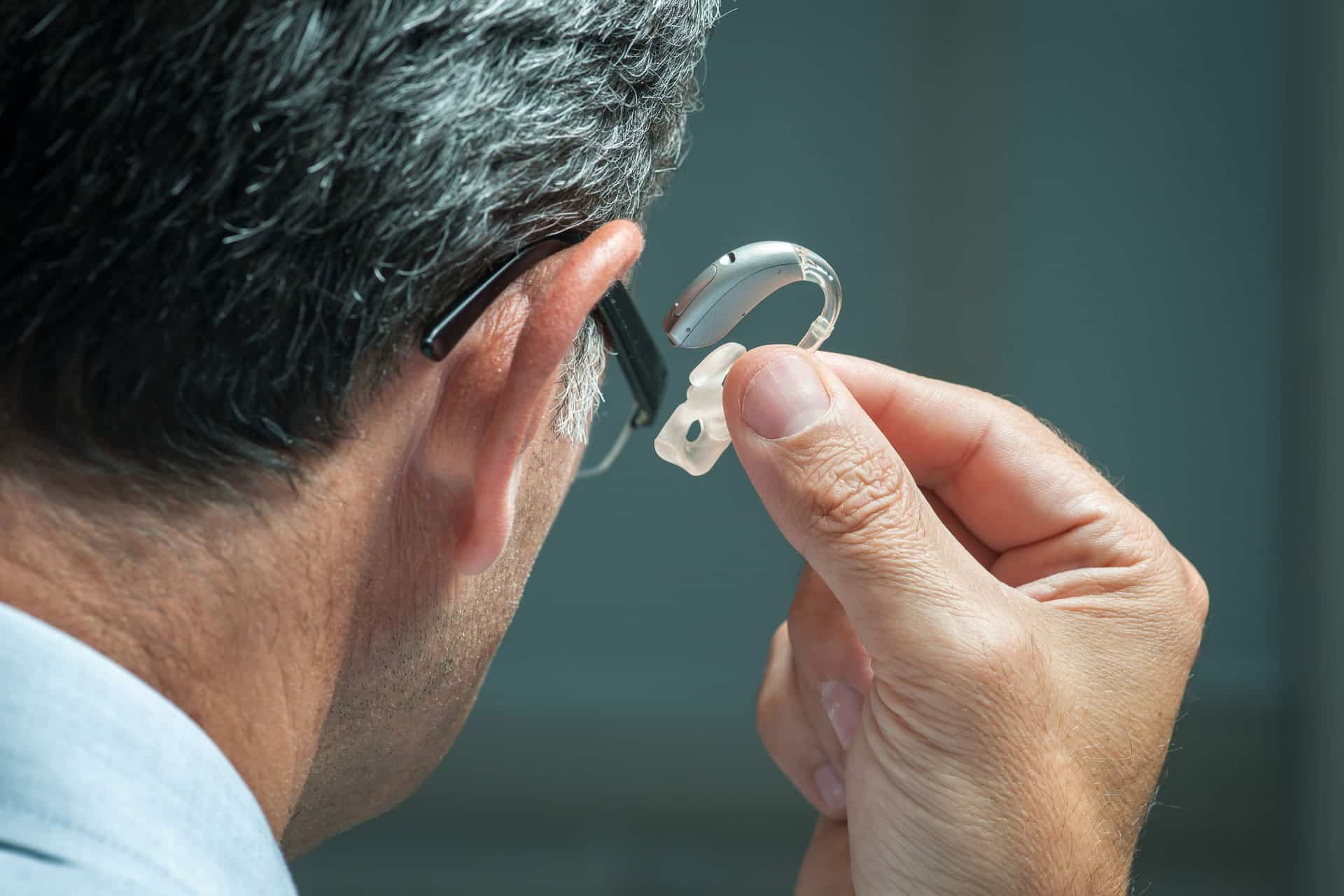Delivery in 2-3 working days
Age-related hearing loss
It is an unavoidable reality of aging that our bodies change. But did you know that our hearing is also affected? These changes can show up in different ways and have different consequences. Learn more about age-related hearing changes and age-related hearing loss here.
What is age-related hearing loss?
Age-related hearing loss, also known as presbycusis, is a gradual but steady decline in our hearing due to natural changes in the ear. It is a common result of the aging process and affects millions of people worldwide. Although there is no cure, there are many ways to improve hearing and maintain quality of life.
How does age-related hearing loss manifest itself?
The symptoms of age-related hearing loss can be subtle and gradual. These include:
- Difficulty hearing high tones and certain frequencies
- Difficulty understanding conversations in noisy environments
- The impression that sounds or voices sound "muffled
- The constant need to turn up the volume on the TV or radio
These difficulties can lead to isolation and frustration, so it is important to be alert to changes in hearing and seek help in a timely manner.
What causes age-related hearing loss?
The role of hair cells
Our inner ear contains thousands of hair cells that are responsible for converting sound waves into electrical signals, which are then interpreted by our brain as sounds. As we age, some of these hair cells die and cannot be replaced, resulting in gradual hearing loss. This is a natural process that can be influenced by various factors.
Other risk factors
There are other factors that can contribute to hearing loss. These include:
- Prolonged exposure to loud noise
- Certain diseases, such as diabetes or high blood pressure
- Genetic factors
- Certain medications that can damage hearing
Any of these factors can accelerate the aging process of hearing and increase the risk for age-related hearing loss.
How is age-related hearing loss diagnosed and treated?
If you are concerned that your hearing is declining, the first step is to see an ENT physician. A thorough examination and hearing test can provide information about the extent and cause of your hearing loss. Early detection and treatment can help slow the progression of hearing loss and improve quality of life.
Although there is no cure for age-related hearing loss because the hair cells in the inner ear cannot grow back, there are several treatment options and tools that can help improve your hearing and enhance your quality of life.
Hearing aids
Hearing aids are small devices that are worn in or behind the ear. They amplify sounds, which makes it easier to hear. A hearing care professional can help you find the right device and adjust it properly so that you can once again actively participate in social life and maintain your independence.
Cochlear Implants
For people with severe hearing loss, cochlear implants might be an option. These devices bypass the damaged parts of the hearing organ and stimulate the auditory nerve directly.
Assistive Listening Devices (ALDs)
ALDs are devices that make everyday life easier or safer for people with hearing loss, for example, special telephone amplifiers and special alarms.
TV sound amplifier
TV sound amplifiers such as the OSKAR from faller audio are a great addition to a hearing aid. The portable loudspeaker with special dialogue optimization brings the speech-optimized television sound directly to the listening position for older people and people with hearing impairments. It filters out background noise so that speech on television can be better understood.
How can I protect my hearing?
There are several steps you can take to protect your hearing and prevent age-related hearing loss:
- Avoid loud noise whenever possible
- Wear hearing protection in noisy environments
- Perform regular hearing tests to detect problems early on
By taking care of your hearing and taking preventive measures, you can help preserve your hearing for as long as possible. On top of that, a healthy lifestyle can contribute to better hearing protection. Avoid smoking and excessive alcohol consumption, as these habits are associated with a higher likelihood of hearing loss.



